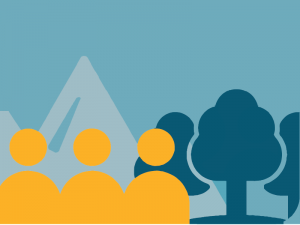Covid, Kinship and a Moral Economy
 How are kinship and caring related to world economic systems, and might these concepts be central to a post-pandemic vision of flourishing for people and the planet? Kenan Senior Fellows Michaeline Crichlow and Dirk Philipsen teamed up with academics from several schools and disciplines to explore this and other questions in a special issue of Cultural Dynamics on “Markets, Race, and COVID-19” that comes out this month.
How are kinship and caring related to world economic systems, and might these concepts be central to a post-pandemic vision of flourishing for people and the planet? Kenan Senior Fellows Michaeline Crichlow and Dirk Philipsen teamed up with academics from several schools and disciplines to explore this and other questions in a special issue of Cultural Dynamics on “Markets, Race, and COVID-19” that comes out this month.
“The demands emanating from these twin crises, Covid-19 and racial justice, seem to coalesce around the need for an economy that is more caring than what we have known and endured,” wrote Crichlow and Philipsen in the introduction to the issue, which they co-edited. “Covid-19 has unambiguously peeled back the layers of socioeconomic inequality and sociocultural divisions globally. In stark terms it has revealed the gendered, raced and classed sacrifices and suffering endured by those unable to retreat from its ravages and secure themselves. The Covid-19 pandemic has multiplied the modes of disruption and cumulatively deepened insecurities at various levels—from local health and employment, to housing vulnerabilities, macro-economic shocks, systemic market strains and a global specter of unprecedented levels of debt and poverty.”
Crichlow and Philipsen began exploring “Markets and Morality” in 2018 through a Bass Connections project in partnership with the Kenan Institute for Ethics. In their Bass Connections classes, students learned about responses to the imbalances and inequities in the global economy, such as attempts to build various models of Community Supported Agriculture (CSAs) or community banking schemes where participants pooled their savings to procure short term loans among themselves. Students also studied efforts by countries such as China to address environmental concerns even as they moved toward urbanization and advanced industrialization and researched case studies from the Global South that centered the experiences and stories of vulnerable populations.
The “Reflection on Markets, Race, and COVID-19” expands this work to the pandemic moment. The issue looks at questions such as “Who is being dislocated by whom and why? Are all relationships reduced to some form of transaction? What morality is possible in this reality?” It also explores the concept of “caring that embraces all areas of life and pursues all practices of reimagining life without the carelessness to human, nonhuman, and ecological life.” This sort of caring is rooted in a kinship that transcends social capital.
The Covid-19 pandemic underscored the issues that Crichlow and Philipsen were already researching, but they also hope it is providing an opening to consider alternative models.
“Large and growing numbers of people seem interested in improving life for everyone, not just the privileged,” Crichlow and Philipsen wrote. “We may well be witnessing a resetting that centers care and promotes the interdependence of humans and the environment.”
Philipsen will continue researching the care economy with Duke undergraduate and graduate students this year through a 2021-2022 Bass Connections project on “Revaluing Care in the Global Economy,” which he is co-leading with Duke History Professor Jocelyn Olcott.
